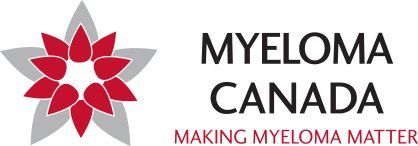February 4, 2024
A new multiple myeloma trial assessing the duration of treatment injections has opened in Canada.

The CCTG MY13 trial is a phase III non-inferiority randomized controlled trial of fixed duration versus continuous daratumumab among transplant in eligible older adults with newly diagnosed multiple myeloma.
There is little scientific evidence around the effective timing of injectable treatments for multiple myeloma. These patients receive treatment with three medicines – two tablets and an injection – all continued indefinitely until they stop working, or the side effects become unmanageable.
“If fixed duration treatment is found to be as effective as continuous treatment, this can lead to less side effects and better quality of life for patients and huge cost-saving measures for Canada’s health-care system,” says Dr Hira Mian, Juravinski Hospital hematology oncologist and MY13 study chair.
This study will help researchers understand if limiting the timing of the injectable treatments to 18 months is as good as the usual continuous treatment. They also hope to learn if the controlled timing reduces side effects like infections and improves quality of life.
“As a myeloma patient I am very excited about this trial and access to it for Canadians. It will provide useful information to help determine the optimal use of daratumumab treatment potentially improving quality of life,” says David McMullen, a CCTG Patient Representative whose role it is to ensure that needs of patients are heard in the development of clinical trials.
The trial team and participating Canadian sites aim to enroll 559 older adult patients who will be randomly assigned to a continuous or fixed duration daratumumab. Participants will continue to be followed for 4 years post treatment.
“This study will focus on older patients as the majority of people with myeloma are older adults, for whom potential side effects and quality of life are of great importance,” says Dr. Annette Hay the CCTG MY13 trial Senior Investigator.
The primary endpoint of the trial is progression-free survival. Planned secondary endpoints include quality of life, overall survival, and cost-effectiveness.
“Supporting the advancement of Canadian ‘home-grown’ clinical trials in myeloma is critical to advancing novel treatments and drug therapies for our Canadian myeloma community.” says Martine Elias, Executive Director at Myeloma Canada, an important supporter of the trial. Elias added, “Investing in Canadian trials such as this ensures that the research that matters most to Canadians impacted by myeloma gets done.”
Myeloma Canada funding will help support the collection, analysis, and presentation of patient reported outcomes that will enable quality of life and health economic analyses. The study is also supported by a grant from the Canadian Institute of Health Research (CIHR) and the Canadian Cancer Society (CCS).


